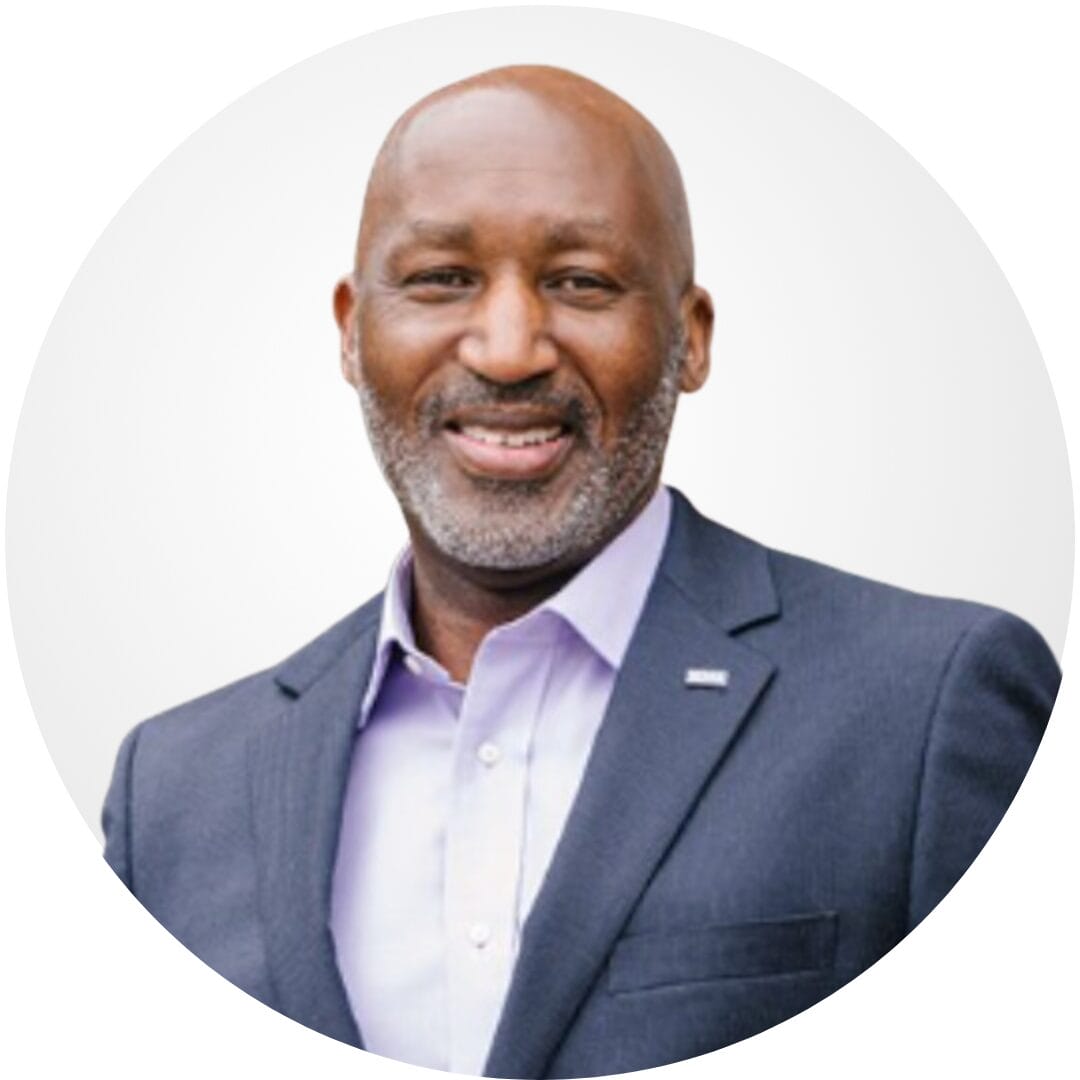A positive customer experience in healthcare builds trust and keeps patients engaged with their providers. Patients expect smooth interactions, timely responses, and easy access to their medical information. Long wait times, confusing communication, or difficulty scheduling appointments can lead to frustration, pushing them to seek care elsewhere.
According to a pwc survey, 73% of respondents polled stated customer experience was the most significant factor influencing their decision to purchase a healthcare service, behind price and quality.
Satisfied patients are more likely to follow treatment plans and return for future care. When healthcare providers focus on convenience and clear communication, they strengthen patient relationships. This improves retention and encourages word-of-mouth recommendations, crucial in an increasingly competitive healthcare industry.
Technology plays an important role in shaping the customer experience in healthcare. Digital tools, such as mobile health apps and patient portals, simplify appointment booking, provide real-time health updates, and allow direct provider communication. These advancements help meet modern patient expectations and improve overall healthcare accessibility.
Technology is reshaping the customer experience in healthcare by making patient care more personalized and accessible. Digital tools like AI, machine learning, and IoT help healthcare providers analyze patient data, predict health risks, and offer more accurate treatments. These advancements improve communication, reduce wait times, and ensure timely interventions.
Mobile health apps are crucial in transforming patient care by offering real-time health tracking, appointment scheduling, and personalized health recommendations. Patients can access their medical history, receive medication reminders, and connect with healthcare providers anytime.
🔹Real-Time Health Monitoring: Wearable devices and health apps track vital signs, providing doctors with up-to-date health data.
🔹Medication and Appointment Reminders: Patients receive alerts for upcoming checkups, reducing missed visits.
🔹Secure Communication with Providers: In-app messaging and virtual consultations improve doctor-patient interactions.
🔹Personalized Health Insights: AI-driven recommendations help users make informed lifestyle choices.
🔹Convenient Access to Medical Records: Patients can review test results and treatment history.
Related read: A Guide to Building Intuitive and Useful Healthcare Mobile Apps
Traditional healthcare apps struggle with customer experience in healthcare due to poor personalization, navigation issues, security concerns, and a lack of EHR integration, hindering adoption and limiting digital health solutions’ effectiveness. Let’s understand a few challenges below:
Often, one-size-fits-all apps fail to meet patient expectations. Many users seek AI-driven recommendations, real-time health tracking, and customized insights. Without personalization, engagement remains low, and patients may abandon the app.
Cluttered designs, slow performance, and complex navigation frustrate users. Intuitive interfaces, voice commands, and multilingual support are necessary for accessibility. A smooth experience encourages patients to use healthcare apps consistently.
Patients are cautious about sharing health data due to strict regulations like HIPAA and GDPR. Concerns over data breaches and misuse add to their reluctance. Implementing end-to-end encryption, biometric authentication, and secure cloud storage ensures patient information remains confidential, reducing risks and building trust in digital healthcare solutions.
Many healthcare apps operate in isolation, making it possible to sync with existing EHR systems. This fragmentation prevents providers from accessing complete patient records, leading to gaps in care. Ensuring smooth integration with EHR allows seamless data exchange, improving care coordination and clinical decision-making in the healthcare customer experience.
Related read: Checklist for EHR Integration in the Healthcare System
Many apps lack direct channels for patients to reach healthcare professionals. Without real-time chat, virtual consultations, or AI-assisted responses, users may feel disconnected and unsure about managing their conditions effectively.
Elderly patients and those unfamiliar with digital tools may find healthcare apps difficult to use. Simplified onboarding, tutorials, and responsive customer support are crucial in ensuring wider adoption and usability.
Related read: Elderly Care Technology in Home Health Care: Key Trends Shaping 2025
Overly complex apps with excessive features can overwhelm users. Patients prefer a streamlined customer experience in healthcare with clear functionalities that address their immediate needs without unnecessary distractions.
A high-converting personalized mobile health app focuses on user engagement, accessibility, and efficiency. Key features include AI-driven recommendations, a user-friendly interface, wearable device integration, telehealth support, and more. Let’s see these features in the below infographic:
Related read: The Future of mHealth Apps: What’s Next for this Promising Technology?
Personalized mobile apps for managing chronic diseases like diabetes, hypertension, and mental health use AI to track patient data and provide real-time feedback. These apps offer tailored recommendations, allowing patients to monitor their condition and adjust treatments based on accurate, up-to-date information.
Telemedicine apps are changing healthcare by allowing virtual consultations between patients and healthcare providers. These platforms enable remote monitoring, where vital signs are tracked continuously. Post-surgical care is further supported through virtual check-ins, improving the customer experience in healthcare with ongoing support without requiring hospital visits.
Wellness apps are helping individuals manage their health proactively by offering features like nutrition tracking, fitness coaching, and mental health support. These applications use AI-driven data to deliver personalized guidance, assisting users in maintaining a balanced lifestyle and preventing potential health concerns before they occur.
Mindbowser builds mobile health apps that integrate AI, IoT, and cloud computing to improve the customer experience in healthcare. These apps prioritize security, compliance, and user-friendly features while ensuring continuous support for healthcare providers.
➡️ AI-Powered Insights: Personalizes healthcare recommendations based on patient data.
➡️ IoT Integration: Connects wearable devices for real-time health tracking.
➡️ Cloud-Based Access: Enables secure data storage and easy retrieval.
➡️ HIPAA/GDPR Compliance: Ensures patient data privacy and security.
➡️ Continuous Optimization: Regular updates to improve app functionality and performance.

Investing in mobile health apps that prioritize customer experience in healthcare leads to better patient engagement, improved access to care, and higher satisfaction. Focusing on intuitive design, real-time support, and personalized features can create a more user-friendly healthcare experience. Businesses should embrace technology that simplifies healthcare interactions and meets patient expectations.
Create a mobile health app that puts the patient experience first. Connect with us to explore the possibilities!

We worked with Mindbowser on a design sprint, and their team did an awesome job. They really helped us shape the look and feel of our web app and gave us a clean, thoughtful design that our build team could...


The team at Mindbowser was highly professional, patient, and collaborative throughout our engagement. They struck the right balance between offering guidance and taking direction, which made the development process smooth. Although our project wasn’t related to healthcare, we clearly benefited...

Founder, Texas Ranch Security

Mindbowser played a crucial role in helping us bring everything together into a unified, cohesive product. Their commitment to industry-standard coding practices made an enormous difference, allowing developers to seamlessly transition in and out of the project without any confusion....

CEO, MarketsAI

I'm thrilled to be partnering with Mindbowser on our journey with TravelRite. The collaboration has been exceptional, and I’m truly grateful for the dedication and expertise the team has brought to the development process. Their commitment to our mission is...

Founder & CEO, TravelRite

The Mindbowser team's professionalism consistently impressed me. Their commitment to quality shone through in every aspect of the project. They truly went the extra mile, ensuring they understood our needs perfectly and were always willing to invest the time to...

CTO, New Day Therapeutics

I collaborated with Mindbowser for several years on a complex SaaS platform project. They took over a partially completed project and successfully transformed it into a fully functional and robust platform. Throughout the entire process, the quality of their work...

President, E.B. Carlson

Mindbowser and team are professional, talented and very responsive. They got us through a challenging situation with our IOT product successfully. They will be our go to dev team going forward.

Founder, Cascada

Amazing team to work with. Very responsive and very skilled in both front and backend engineering. Looking forward to our next project together.

Co-Founder, Emerge

The team is great to work with. Very professional, on task, and efficient.

Founder, PeriopMD

I can not express enough how pleased we are with the whole team. From the first call and meeting, they took our vision and ran with it. Communication was easy and everyone was flexible to our schedule. I’m excited to...

Founder, Seeke

We had very close go live timeline and Mindbowser team got us live a month before.

CEO, BuyNow WorldWide

Mindbowser brought in a team of skilled developers who were easy to work with and deeply committed to the project. If you're looking for reliable, high-quality development support, I’d absolutely recommend them.

Founder, Teach Reach

Mindbowser built both iOS and Android apps for Mindworks, that have stood the test of time. 5 years later they still function quite beautifully. Their team always met their objectives and I'm very happy with the end result. Thank you!

Founder, Mindworks

Mindbowser has delivered a much better quality product than our previous tech vendors. Our product is stable and passed Well Architected Framework Review from AWS.

CEO, PurpleAnt

I am happy to share that we got USD 10k in cloud credits courtesy of our friends at Mindbowser. Thank you Pravin and Ayush, this means a lot to us.

CTO, Shortlist

Mindbowser is one of the reasons that our app is successful. These guys have been a great team.

Founder & CEO, MangoMirror

Kudos for all your hard work and diligence on the Telehealth platform project. You made it possible.

CEO, ThriveHealth

Mindbowser helped us build an awesome iOS app to bring balance to people’s lives.

CEO, SMILINGMIND

They were a very responsive team! Extremely easy to communicate and work with!

Founder & CEO, TotTech

We’ve had very little-to-no hiccups at all—it’s been a really pleasurable experience.

Co-Founder, TEAM8s

Mindbowser was very helpful with explaining the development process and started quickly on the project.

Executive Director of Product Development, Innovation Lab

The greatest benefit we got from Mindbowser is the expertise. Their team has developed apps in all different industries with all types of social proofs.

Co-Founder, Vesica

Mindbowser is professional, efficient and thorough.

Consultant, XPRIZE

Very committed, they create beautiful apps and are very benevolent. They have brilliant Ideas.

Founder, S.T.A.R.S of Wellness

Mindbowser was great; they listened to us a lot and helped us hone in on the actual idea of the app. They had put together fantastic wireframes for us.

Co-Founder, Flat Earth

Mindbowser was incredibly responsive and understood exactly what I needed. They matched me with the perfect team member who not only grasped my vision but executed it flawlessly. The entire experience felt collaborative, efficient, and truly aligned with my goals.

Founder, Child Life On Call

The team from Mindbowser stayed on task, asked the right questions, and completed the required tasks in a timely fashion! Strong work team!

CEO, SDOH2Health LLC

Mindbowser was easy to work with and hit the ground running, immediately feeling like part of our team.

CEO, Stealth Startup

Mindbowser was an excellent partner in developing my fitness app. They were patient, attentive, & understood my business needs. The end product exceeded my expectations. Thrilled to share it globally.

Owner, Phalanx

Mindbowser's expertise in tech, process & mobile development made them our choice for our app. The team was dedicated to the process & delivered high-quality features on time. They also gave valuable industry advice. Highly recommend them for app development...

Co-Founder, Fox&Fork
